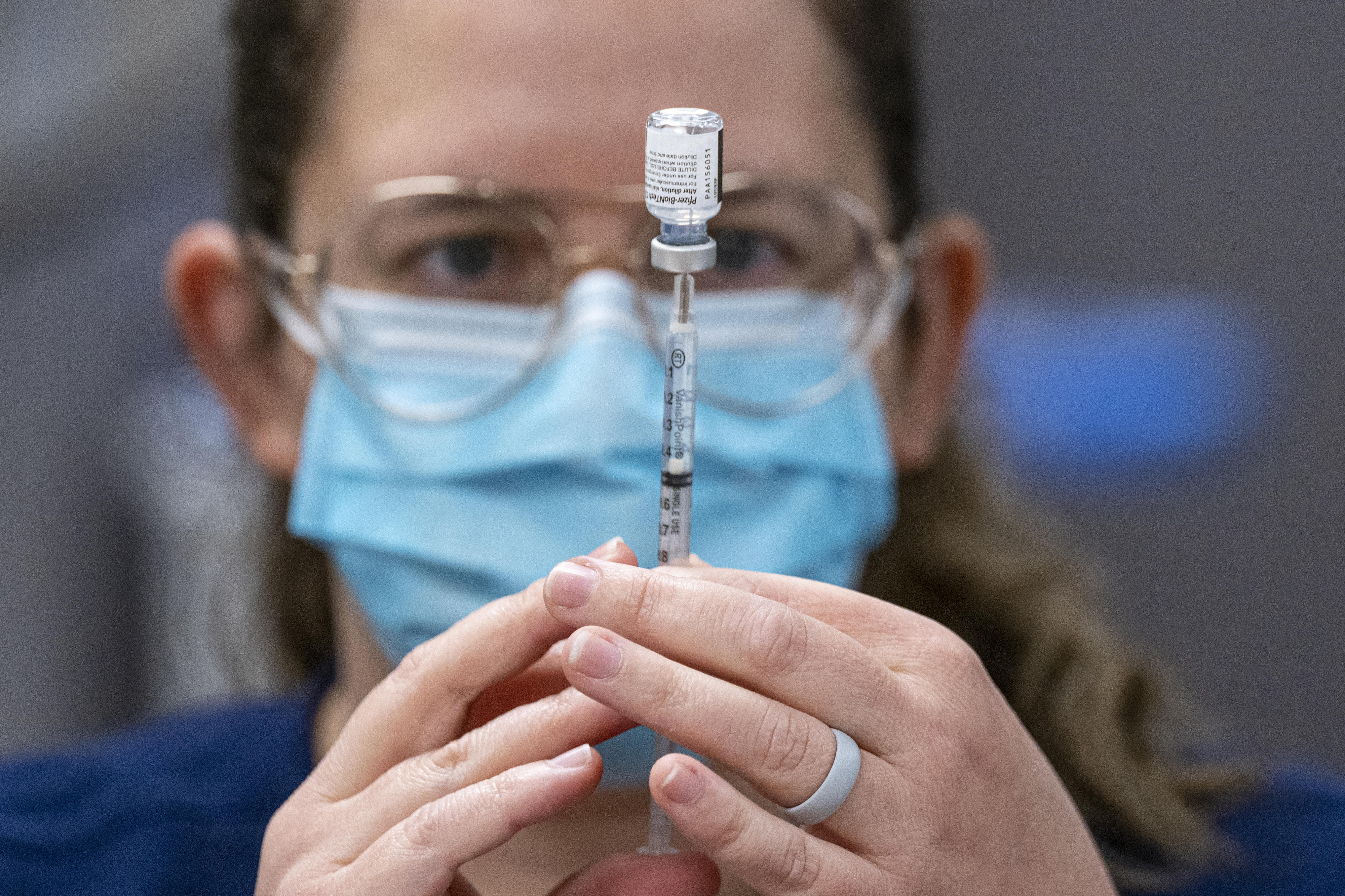A healthcare professional wearing a protective mask fills a syringe with a dose of the Pfizer-BioNTech Covid-19 vaccine at a large-scale vaccination site in Sacramento, California, February 4, 2021.
David Paul Morris | Bloomberg | Getty Images
As Covid-19’s vaccination efforts are underway at major retailers and pharmacies, such as CVS and Walgreens, what to do with the excess vaccine becomes a bigger issue.
Both versions of the vaccine need to be stored at very low temperatures. After thawing, the vaccine should be administered within a few hours. In addition, vaccine bottles contain multiple doses.
The companies have told The Wall Street Journal that they plan to use waiting lists and will consider vaccinating eligible employees when excess supplies are available. The goal is to avoid wasting doses, which remain scarce.
As of Thursday, doses of the vaccine are being sent to thousands of pharmacies and supermarkets, such as CVS and Walmart in the United States. This move will begin with about 6,500 retail locations and help speed up the launch, ensuring that more Americans are protected from Covid-19.
Companies are scheduling appointments based on the amount of vaccine they receive at each location, but they may find themselves with surplus vaccine if customers fail to show up for an appointment or if a vaccine bottle contains more vaccine than anticipated.
Currently, only two vaccines, one from Pfizer-BioNTech and the other from Moderna, have received emergency use authorization from the Food and Drug Administration. Both types require two doses of the injection to be effective.
Retailers are having to navigate various state and local rules on eligibility requirements while managing waiting lists and determining what to do with overdoses. In some states, retail workers are eligible to receive the vaccine, while in other states they are not considered a high priority group, unless they are over a certain age or have a specific medical condition.
A spokeswoman for Walmart told the newspaper that the retailer approached buyers or workers qualified by state guidelines with the opportunity to be vaccinated if there was an overdose.
Walmart has worked with state health departments on protocols to prevent waste, a Walmart spokesman told CNBC. These protocols allow open and excess doses to be administered to individuals, including employees, who fall into eligible groups in order of priority.
A Walgreens spokesman told CNBC that they will consider their employees for the remaining doses and will communicate with state and local jurisdictions for doses in addition.
Meanwhile, CVS pharmacists will maintain a list of qualified patients by state and use it to determine who receives the remaining doses of the vaccine, CVS Senior Vice President Chris Cox told CNBC.
Read the full story in The Wall Street Journal.
